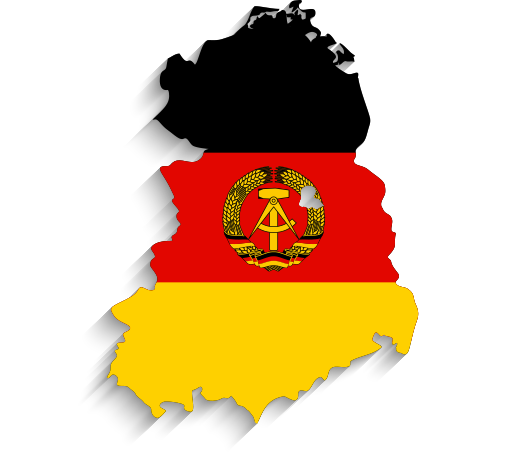(Grant Agreement n. 669194)
(Leningrad, 25/4/1927 - Berlin, 22/10/1990)
Secretary of Trade Supply and Foreign Trade - Central Committee (1963-1989)Member - Extended "Small Circle" (1971-1989)
Member - Working Group Balance of Payments (1974-1989)

Werner Jarowinsky was a longstanding economic functionary of the GDR. Formally, his area of responsibility as Secretary of the Central Committee included foreign trade, however, on the party-level the Economic Secretary, Günter Mittag, monopolized this field. Jarowinsky was permanent member of the Working Group Balance of Payments and the Extended “Small Circle,” but he did not leave any remarkable footprints in the East German economic debates and stood with the party line.
|
Despite being in office for more than two decades, in economic relations to the West, Horst Sölle remained a rather colorless person. In the first few years after the diplomatic recognition of the GDR he paid a couple of state visits and ... |
|
The installation of the Working Group CMEA of the Socialist Unity Party of Germany was another sign of the party’s intention to increase control over foreign trade. Naturally, the Working Group CMEA headed by Horst Tschanter had several ... |
|
Günter Mittag was the economic mastermind of the Socialist Unity Party of Germany. Within the provisions set by Erich Honecker he executed control over the East German economy. He served as Secretary of the Central Committee for Economics... |
|
Comparable to the SED’s Secretary of the Central Committee for Trade, Supply and Foreign Trade Werner Jarowinsky, the head of the Department of Trade, Supply and Foreign Trade had hardly any actual influence on foreign trade and did not ... |
|
While the Minister of Foreign Trade, Horst Sölle, was a rather colorless person in the GDR’s Western Trade, State Secretary and later Deputy Minister Gerhard Beil executed a great deal of the ministerial day-to day business. He was ... |
|
Memorandum on the discussion of the draft of the five-year plan 1976–1980 presided by Honecker
BArch-DDR, DE 1/58633
In this meeting of the “small circle” in November 1976 dealing with the next five-year plan the Chairman of the State Planning commission, Gerhard Schürer, stated: “The gap between imports and exports has widened further but it has to be closed by all means. That is a fateful question for the GDR.” In the following discussion some thought about rigorous import cuts, others reasoned about the causes within the CMEA and problems on the Western sales markets. Nevertheless, Günter Mittag and Erich Honecker also highlighted positive examples of trade relations with the West and the growing Western acceptance of countertrades. Honecker concluded that the plan 1976–1980 is shaped by the enforcement of the “Unity of Economic and Social Policy,” which he did not intend to change. Honecker did not expect any progress in CMEA integration, expressed his worries about the balance of payments, and advocated increasing exports to the West and developing countries as well as cooperation on third markets if they earned hard currency. - Available only in the archive: https://www.bundesarchiv.de |
